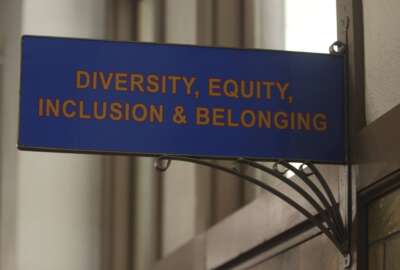GAO: DCMA hampered by contingency contracting, DCAA
The contract management agency has added staff in recent years and sought a pivot in strategy, the GAO found. But DCMA still faces issues, such as contingency...
wfedstaff | April 17, 2015 3:34 pm
This story has been updated from its original version to include comments from DCMA.
By Jack Moore
Federal News Radio
For most of the past decade, the Defense Contract Management Agency shed staff and decentralized its approach to managing the Defense Department’s contracts — all while DoD contract spending skyrocketed.
The Government Accountability Office examined how DCMA, which has added staff and pivoted in strategy the last few years, is now prepared to meet its mission.
The GAO report documented a lost-in-the-wilderness period for the agency.
“As the workforce declined, the agency experienced significant erosion of expertise in some areas, such as the cost and pricing function, such that it could not fulfill all of its oversight functions,” auditors stated in the report.
And staff tasked with managing contracts for contingency operations in Iraq and Afghanistan — while small in number — constrained the agency’s domestic work, the report found.
But now, even as other agencies prepare for tightened belts and reduced workforces, DCMA plans to add staff — a total of 9,300 employees by 2015, a 43 percent increase from 2008 levels.
“DCMA is really in a state of transition,” said John Hutton, GAO’s director of acquisition and sourcing management issues, in an interview on In Depth with Francis Rose.
Part of the reason for DCMA’s optimistic hiring goals lies in DoD’s Acquisition Workforce Development Fund, Hutton said. DCMA hired about 1,221 employees in 2011, alone, using the fund, he added.
Contingency constraints
But even with a boost to its workforce, the agency also faces what Hutton called the “constraining impact of contingency.” In interviews with DCMA staff, GAO found that work for the contingency missions has hindered the agency’s domestic mission, such as delays in quality-assurance response times, slower audits and delayed administrative actions.
“DCMA has noted support for the warfighter is a high priority for the agency,” the GAO report stated, “but has taken steps to mitigate the impact of deployments, such as lengthening deployment time frames to reduce their frequency.”
Hutton said another factor that could impact DCMA’s mission is its reliance on the Defense Contract Audit Agency. DCAA audits contractors’ business systems, such as accounting and estimating systems. These are often viewed as the front-line defense against waste and fraud.
However, DCAA is no stranger to its own workforce and workload issues, Hutton said. Faced with an overloaded schedule, DCAA has opted to focus on higher-risk contracts, often depriving DCMA of “good, timely information” about contractor business systems, he added.
GAO recommended that the agency develop a system that better reflects the actual status of a business system. That is, if an audit has been delayed, which they often are, DCMA could refer to it as “unassessed,” for example, rather than “adequate.”
Charlie E. Williams, Jr., DCMA director, said in a statement that the agency plans on implementing GAO’s recommendations.
“Without question we still have a long way to go, but we view our way forward as a journey which requires diligence and disciplined execution,” Williams said.
Copyright © 2025 Federal News Network. All rights reserved. This website is not intended for users located within the European Economic Area.





